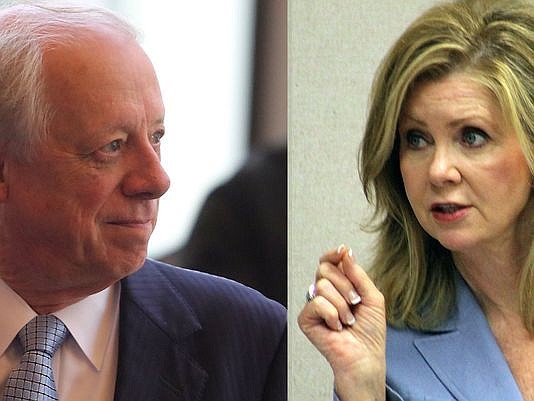COLUMBIA, Tenn. - In a state with 66,600 farms that cover 10.8 million acres with respectable production of soy beans, hogs, tobacco and cotton, there's more than a little nervousness about the U.S. possibly ending up in a trade war with China.
"Absolutely," chief administrative officer and executive vice president of the Tennessee Farm Bureau Federation Rhedona Rose said last week. "I think it's more of a war of words than a trade war right now. But we want to make sure it doesn't turn into a trade war."
President Donald Trump and Chinese President Xi Jinping in recent weeks have threatened to slap tariffs on products exported from each other's countries.
And that was a topic of conversation last Saturday at the Tennessee Farm Bureau Federation's breakfast before the annual Mule Day Parade in Columbia. The parade - and the breakfast hosted by the influential Farm Bureau - have long been considered "must" stops for aspiring political candidates for statewide office, as well as local candidates.
Among those attending this year's breakfast were Republican U.S. Rep. Marsha Blackburn and former Democratic Gov. Phil Bredesen, who are seeking to replace retiring U.S. Sen. Bob Corker, R-Tenn.
Both candidates voiced concerns but were hesitant to criticize Trump.
"What we're focused on is making certain that bad actors get punished. And that the U.S. marketplace - farmers, producers and consumers - don't get punished," said Blackburn, whose district includes parts of Maury County, where Columbia is the county seat. " nobody has put a tariff in place yet. Everything is something that is a suggestion or recomendation or whatever."
Bredesen said "if this trade war is not sorted out over the next few weeks before it becomes active, it's obviously a problem for Tennessee farmers. It's also a problem for a lot of manufacturers who are buying steel and buying aluminum and the like.
"What I'm hoping is this is a negotiating position on the part of the president and he'll get some of the intellectual property protections that he wants that are important and get beyond this trade war stuff and get back to a position where farmers here can sell their products at competitive prices," Bredesen added.
Both candidates have previously voiced concerns about Trump's proposed 25 percent tariffs on steel and aluminum. Tennessee is home to a number of auto assembly plants, auto part supply factories and other manufacturers.
Those proposed tariffs led to China's threat to impose tariffs on a variety of U.S. products, including in agriculture. When the president upped the ante, China's Jinping responded in kind.
While nothing has taken effect yet, the Chinese list includes soybeans, pork, cotton as well as tobacco. All are produced in Tennessee. Tennessee ranks No. 17 among U.S. states in soybean production and 26th in pork.
Trump's concerns include China's $500 billion trade imbalance with the U.S., as well as intellectual property. He accuses China of charging high tariffs on U.S.-made cars and snatching U.S. companies' technology by forcing the firms into joint ventures with Chinese partners.
Xi on Tuesday said he wants to open China's economy more and lower import duties on cars and other goods, a major U.S. concern, according to multiple news accounts. Trump later tweeted he was "thankful" about Xi's "enlightenment." But Chinese officials are already saying the country isn't throwing in the towel on the trade dispute.
Blackburn said the "goal is to protect producers and American manufacturers in the marketplace here. Punish bad actors in China. I mean we've begun a $500 billion a year trade deficit and then they steal about $300 billion in intellectual property every year."
The congressman said she's keeping in close communications with White House officials.
Asked whether Trump's threats to slap China with tariffs is an appropriate way to negotiate, Blackburn said "we'll see."
And Bredesen?
"I don't know the answer to that," he said on whether Trump's tariff threats are appropriate. "The president gets to make these calls about how you're going to negotiate these things. He has a particular style and that's what he's doing."
But Bredesen said "I think as long as it gets resolved in the next few weeks, it doesn't turn into an actual trade war, I think all will be well."
Contact Andy Sher at asher@timesfreepress.com or 615-255-0550. Follow him on Twitter @AndySher1.
